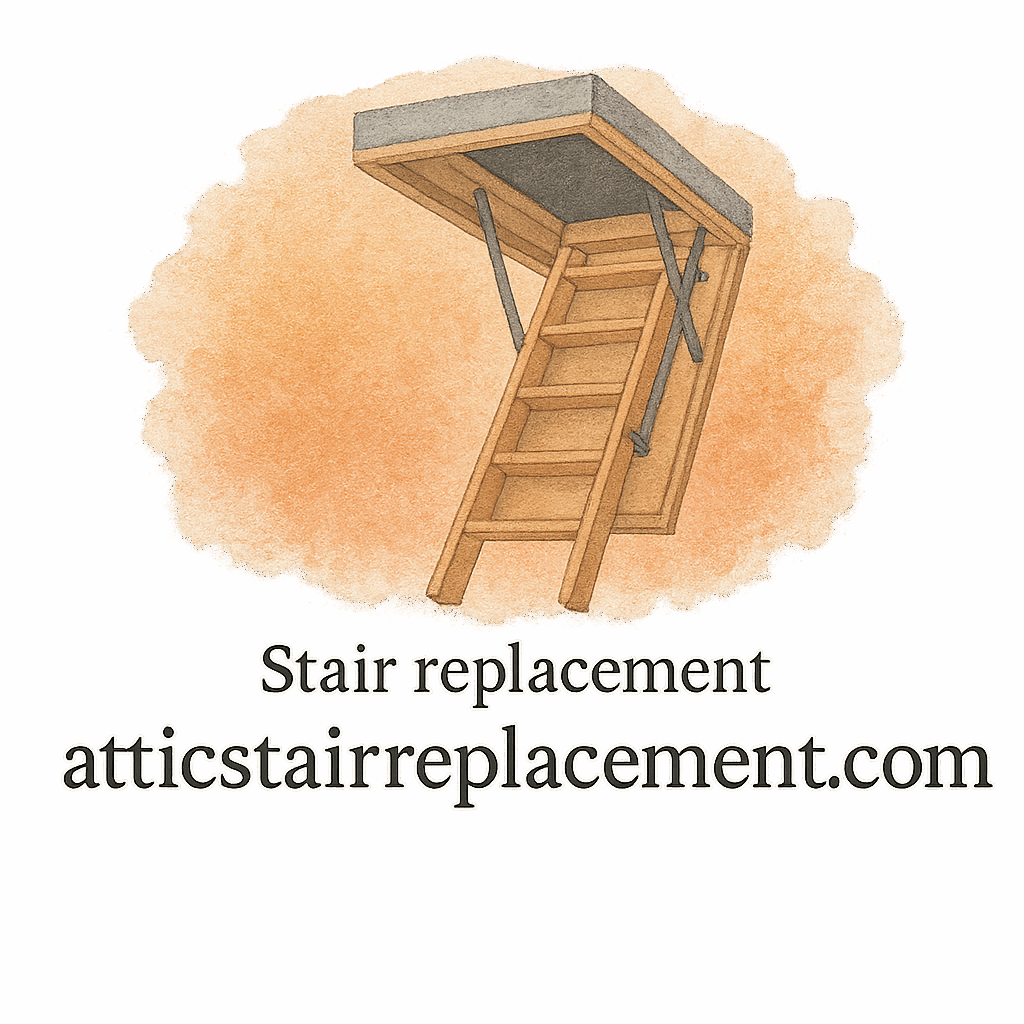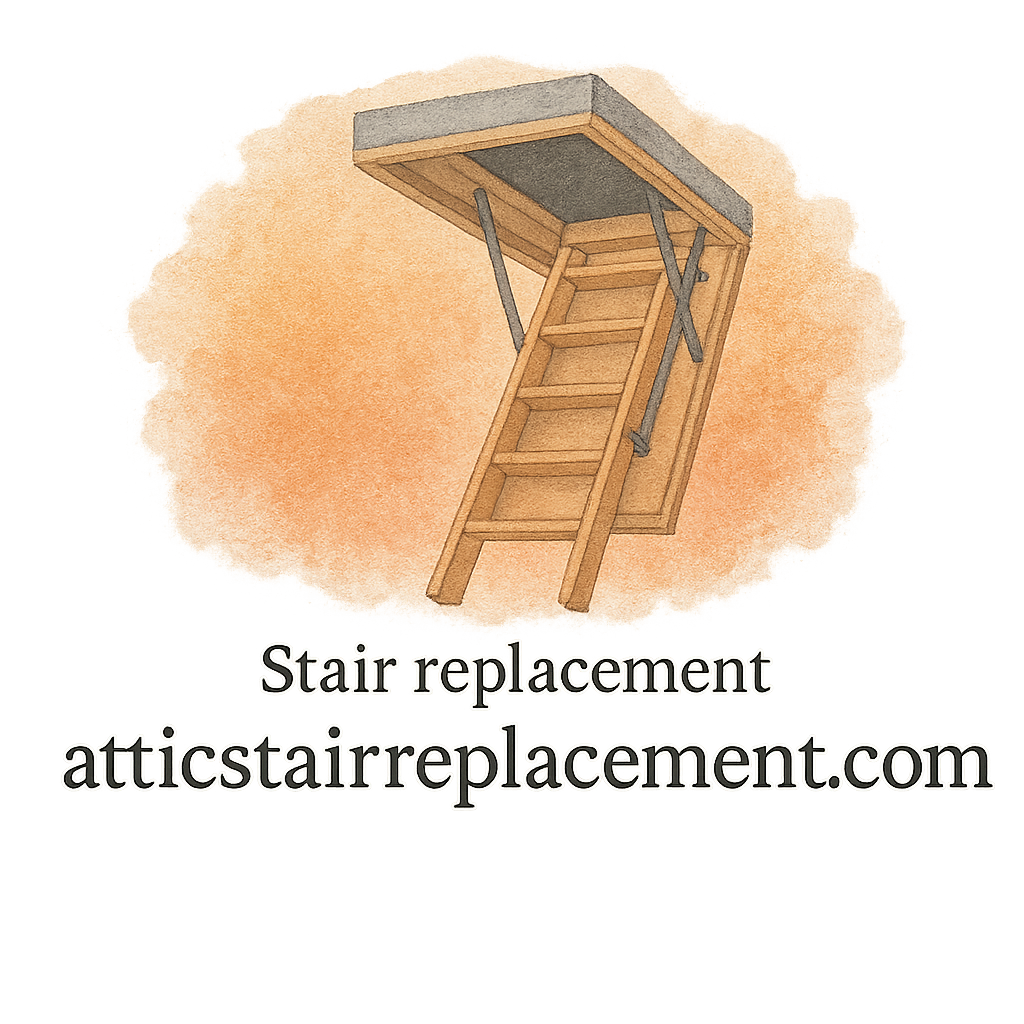Introduction
If you’ve been thinking about attic stair replacement, chances are you’ve noticed how quickly costs can add up. Between the materials, installation fees, and those sneaky hidden charges, it’s easy to overspend. But here’s the good news—you don’t have to break the bank. With the right strategies, you can upgrade your attic stairs affordably while still ensuring safety and durability. In this guide, we’ll break down 10 smart ways to save money on attic stair replacement that are practical, effective, and easy to follow.
Why Attic Stair Replacement Matters
Safety and Accessibility
Old, creaky attic stairs aren’t just annoying—they’re a real safety hazard. A wobbly ladder or cracked steps can lead to injuries, especially if you use your attic for storage. Replacing them ensures safe, reliable access every time.
Home Value and Functionality
A smooth, sturdy attic stair system also adds to your home’s overall value. Buyers love accessible storage solutions, and new stairs can make your attic feel like a usable extension of your home. Plus, the upgrade improves everyday convenience.
Common Costs Involved in Attic Stair Replacement
Before diving into money-saving tips, let’s break down where your money usually goes.
Materials
Wood, aluminum, and steel are the most common choices. Each comes with its own price point—wood being more affordable, while heavy-duty steel options cost more.
Labor and Installation
Hiring a contractor for installation can cost as much as or even more than the stairs themselves. Labor is one of the biggest expenses in this project.
Hidden Costs to Watch Out For
From delivery fees to unexpected repairs like fixing drywall or trim, hidden costs can sneak up. That’s why budgeting with a buffer is always a good idea.
10 Ways to Save Money on Attic Stair Replacement
Now, let’s get to the fun part—the actual ways you can cut down on costs without cutting corners.
1. Choose the Right Material for Your Budget
Not all attic stairs are created equal. Wood options are often cheaper but may require more care, while aluminum offers a balance of affordability and durability. Steel is long-lasting but comes at a higher price. Pick a material that matches both your needs and budget.
👉 Pro tip: Check out product reviews to see which options give you the best bang for your buck.
2. Measure Accurately Before Buying
One of the most common (and costly) mistakes homeowners make is buying the wrong size. An attic stair that doesn’t fit properly means wasted money and extra trips to the store. Always measure your attic opening carefully before ordering.
👉 Need guidance? Visit this expert advice guide for step-by-step measuring tips.
3. Compare Multiple Product Options
Don’t just buy the first model you see. Compare different brands and models for quality, price, and features. Some budget-friendly attic stairs are just as strong as premium options.
👉 Use the home improvement section for comparisons before making your purchase.

4. Consider DIY Installation
If you’re handy with tools, installing attic stairs yourself can save hundreds in labor costs. But remember—it’s not for everyone.
Tools You’ll Need
- Drill
- Measuring tape
- Saw
- Safety gear
When to Call a Professional
If your ceiling is high, or you’re dealing with electrical wiring near the attic opening, it’s safer to hire a contractor.
👉 Step-by-step guides are available in the DIY installation section.
5. Shop During Discounts and Sales
Timing is everything. Big-box stores and online retailers often run seasonal sales. Black Friday, Labor Day, or even clearance sales can save you a significant chunk.
6. Reuse or Repurpose Parts
Sometimes you don’t need to replace the entire system. Hinges, springs, or even steps can be salvaged from your old unit. This way, you only buy the parts that are truly worn out.
7. Focus on Energy Efficiency
Believe it or not, attic stairs can affect your energy bills. Poorly insulated models let warm or cool air escape. By investing in an energy-efficient design, you’ll save on monthly utilities, which adds up long-term.
👉 Explore energy-focused upgrades in the maintenance & repair section.
8. Avoid Common Installation Mistakes
Incorrect installation can lead to squeaks, wobbling, or even premature damage. Fixing these mistakes later costs more than doing it right the first time.
👉 Learn what not to do by reading tips on common mistakes.
9. Do Regular Maintenance to Extend Lifespan
A little care goes a long way. Tightening bolts, oiling hinges, and cleaning debris can make your stairs last years longer. Skipping maintenance means replacing them sooner—and spending more.
👉 For practical tips, check out our care and maintenance resources.
10. Get Expert Advice Before Buying
Consulting with a pro before making a purchase can prevent costly errors. Experts can help you pick the right size, material, and brand for your needs.
👉 Browse our library of expert advice before making a final decision.
Long-Term Savings Benefits
Durability vs. Cheap Options
While it’s tempting to grab the cheapest set of attic stairs, a durable option will save you from early replacements. Think of it like buying shoes—cheaper ones wear out faster, while quality ones last longer.
Preventing Costly Repairs
Proper installation and regular upkeep can prevent bigger repair bills down the road. Spending wisely today helps you avoid “surprise expenses” tomorrow.
👉 Learn how to prevent problems with smart choices now.
Final Thoughts
Saving money on attic stair replacement isn’t about cutting corners—it’s about making smart choices. From picking the right material to doing regular maintenance, each small decision adds up to big savings. By following these 10 cost-effective strategies, you can upgrade your attic stairs without draining your wallet.
For more in-depth resources, check out attic stair replacement guides and stay ahead on your next home project.
FAQs
1. What is the cheapest attic stair material?
Wood is typically the most affordable, but it may require more care than aluminum or steel.
2. Can I install attic stairs myself?
Yes, with the right tools and skills. But for safety and complex jobs, hiring a contractor is best.
3. How much does professional installation cost?
On average, labor costs range from $150 to $500, depending on complexity.
4. Do attic stairs need insulation?
Yes, especially if your attic is connected to your living space. Insulated models save on energy bills.
5. How often should I maintain attic stairs?
Inspect them every 6 months and do small fixes like tightening bolts or oiling hinges.
6. Are there hidden costs in attic stair replacement?
Yes—delivery, disposal of the old unit, and unexpected repairs can all add up.
7. Where can I find reliable attic stair replacement advice?
Check out this expert advice hub for trustworthy information.


